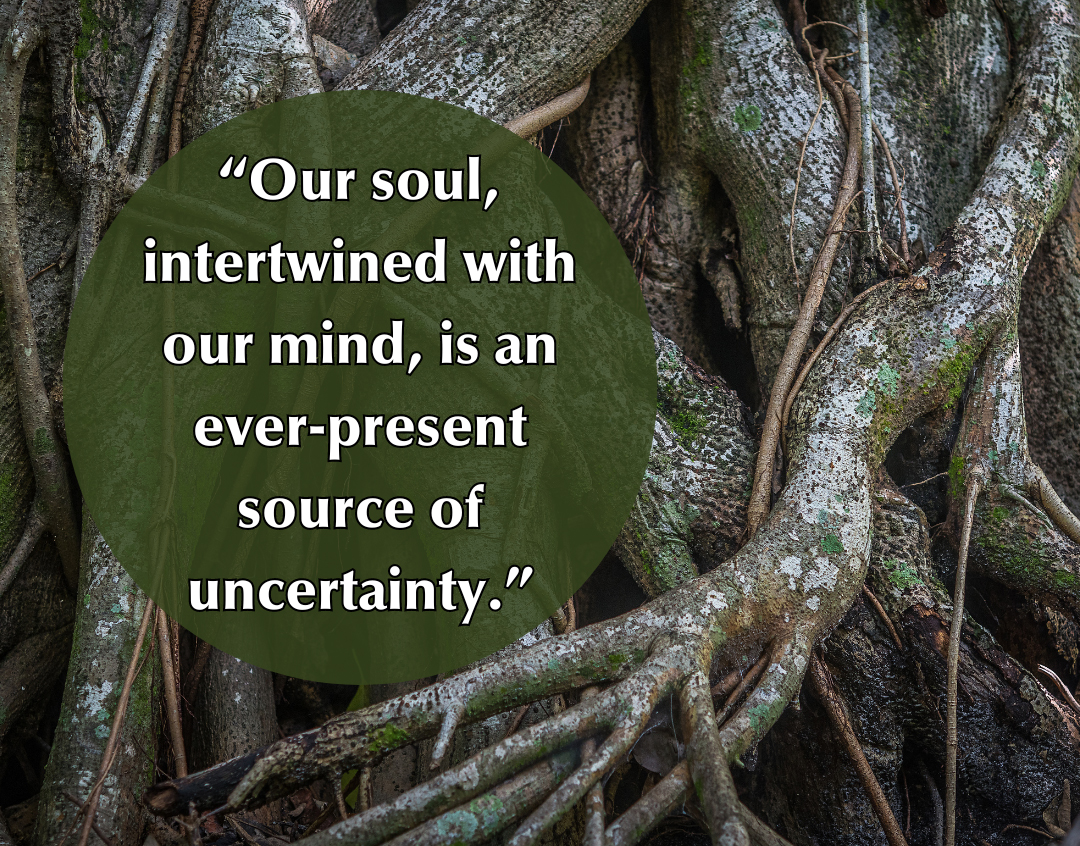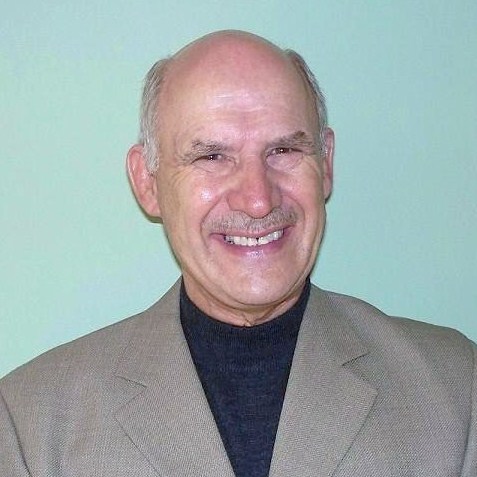Our daily hustle and bustle leaves little time or energy to ponder and question issues beyond our immediate concerns of the here and now. And the natural busyness of living, ties in closely with our own individual level of energy and resources. It is in such a setting, when we feel secure within our own devices and ourselves that the need for spiritual support is often low or non-existent. However, at the end of the day or whenever a quiet moment arrives, to ponder who and what we are, most of us are not content to accept that we are similar to ants—just scampering around and performing instinctual acts.
Our soul, intertwined with our mind, is an ever-present source of uncertainty. Amongst Christian believers many hold that divine and human wills act simultaneously. But the process of these interactions is a mystery that cannot be unravelled through intellection. And for those of us who ponder an afterlife, even amongst the most devout believers, there’s wonderment and uncertainty as to what shape and form an afterlife would take. Perhaps not surprisingly, scriptures have little to say on afterlife specifics. Just how would one go about explaining a supernatural setting to those of us already experiencing the many uncertainties and unknowns of our natural world, the world in which we live?
As with other important matters, some of us give it a lot of thought while others not so much. The struggle in deciding just where we want to be, presents us with choices and challenges. We are always searching for new information, new evidence, to prop up what we already believe. It is as though we need to keep piling on new sources and new findings to sustain our beliefs. Over a lifetime, and it really doesn’t matter how far along life’s journey we are, whether we are young or old, repeated reinforcement of our own rationale results in the further positioning of our view.
When someone close to us, be it a friend or loved one, offers up differing opinions, it sometimes becomes necessary to defend our own well-established position. In the main, we are unable to easily change our minds, especially on important matters that we’ve developed over time. Why is this? Life’s ever-changing scene and our mind’s handling of the steady onslaught of uncertainties experienced in everyday living, cause us to routinely fortify our delicate array of personal views. If we become efficient at suppressing personal doubts then it may become too easy to over-do it and cut off our critical thinking path. The more fortified our personal view becomes and the closer we arrive toward a sense of certainty, the more comfortable and established our thinking becomes. And if and when we become too relaxed in certitude, then that can become a dangerous place, especially when we conclude beyond a shadow of a doubt that “that’s it.” In such a mindset, we can easily fall victim to “being often in error but never in doubt.”
For whatever reason, we are so configured that our thinking process is a constant activity, forever trying to get us to a level of acceptance and comfort. Our comfort levels or peace of mind often vary, and that level of variance may well increase or decrease our level of thinking. If we arrive at too high a comfort level, then we may prematurely shut down and jeopardise our very own thinking machine. On the other hand, if we run our thinking machine full tilt and don’t slow down to relax and refresh, we run the risk of over-heating and overdoing it. Either direction has its pitfalls. An abundance of self-awareness, the ability to ponder without jumping to absolutes, help us to keep it all at an acceptable balance. But it ain’t easy!
Finally, for those of us who believe in the power of prayer and acknowledging what God can do, know that it surpasses all of our frail worldly attempts, in understanding life’s many unknowns. Pondering anew what the Almighty can do, provides us the opportunity to further understand and comprehend all those things we do not know.




